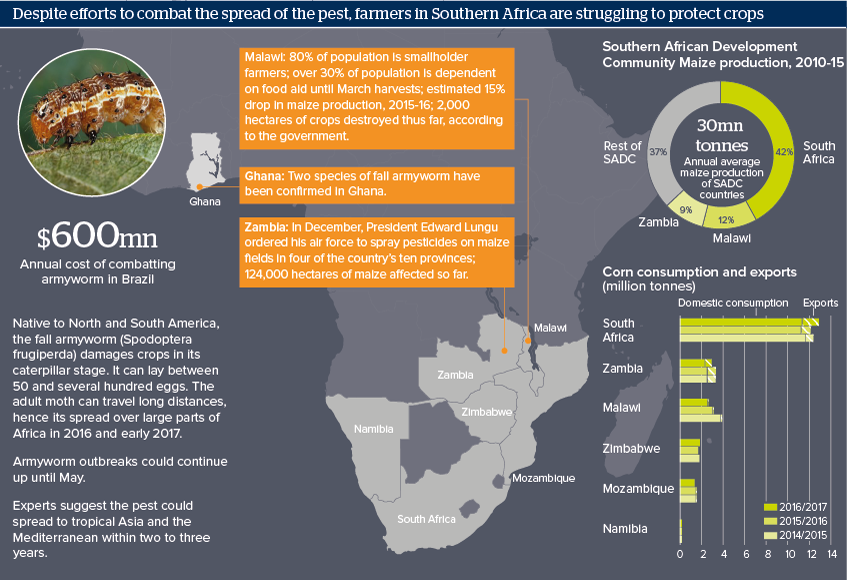Armyworm outbreak could worsen African food insecurity
With several countries attempting to recover from El Nino-related drought, a new pest could hamper regional production
Source: UN Food and Agriculture Organisation (FAO); Famine Early Warning Systems Network (FEWS NET); UN World Food Programme (WFP); United States Department of Agriculture; World Bank
Outlook
An agricultural pest, the fall armyworm rapidly destroys crops such as maize, millet and sorghum. Common to parts of North and South America, it was not widespread in Africa until the first recorded continental cases occurred last year in Central and West Africa. The armyworm outbreak has now engulfed Southern Africa: those with confirmed or suspected cases include Malawi, Mozambique, Namibia, South Africa, Zambia and Zimbabwe.
The UN Food and Agriculture Organisation (FAO) is currently attempting to coordinate a regional response to the crisis. The Centre for Agriculture and Biosciences International (CABI) has warned that the pest could become a continent-wide -- and potentially global -- problem within two to three years.
Impacts
- Regional food insecurity will increase, most notably in aid-dependent countries such as Malawi.
- Several leaders could face popular unrest over the failure to halt the spread of the pest.
- Pressure will mount on the Southern African Development Community (SADC) to coordinate regional prevention efforts.
See also
- Malawian president's popularity will persist - Mar 2, 2017
- Armyworm outbreak will become lasting African problem - Feb 17, 2017
- Armyworm spread could dampen African growth prospects - Feb 6, 2017
- More graphic analysis
